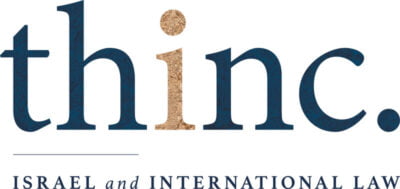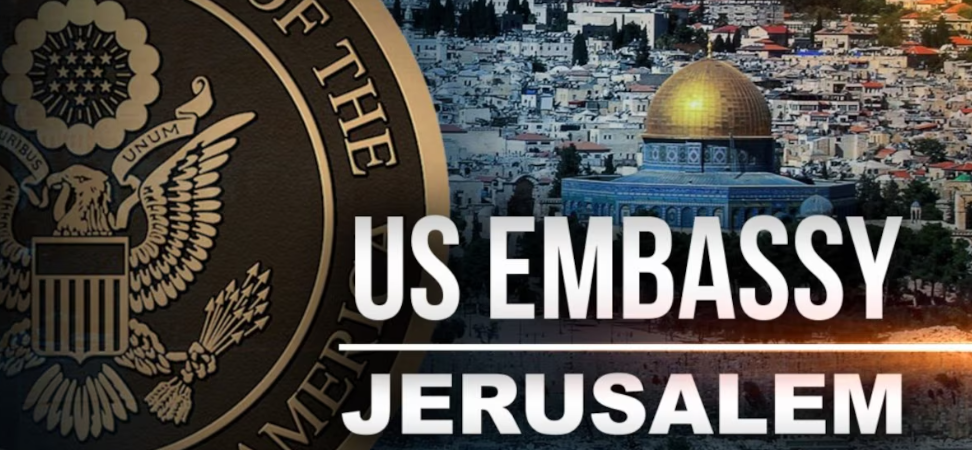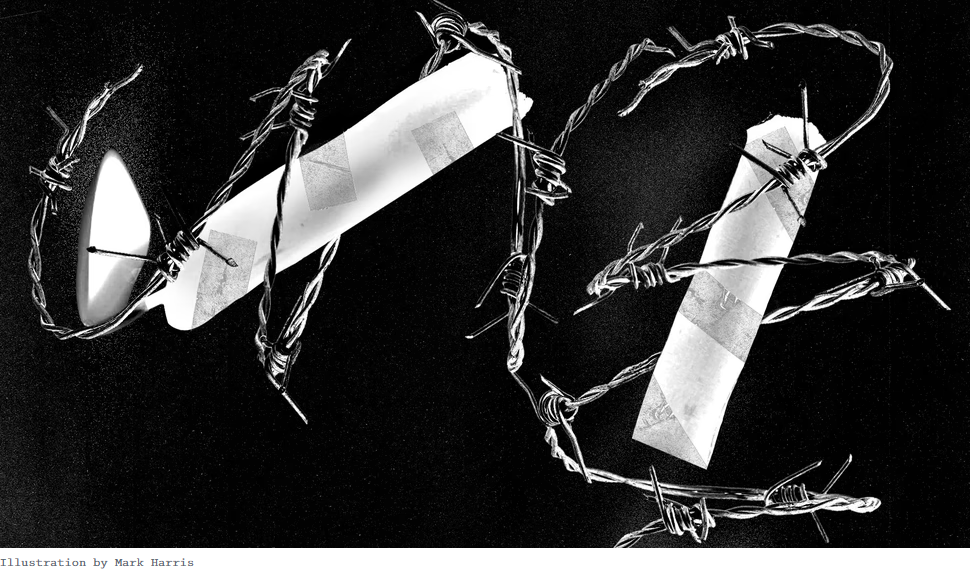By Andrew Tucker, Director thinc.
Background
On Thursday 21 November 2024, Pre-Trial Chamber I of the International Criminal Court (ICC) issued warrants of arrest for two Israeli political leaders – Prime Minster Benjamin Netanyahu and former Defence Minister Yoav Gallant. They are accused of “crimes against humanity and war crimes committed from 8 October 2023 until 20 May 2024”, the day the ICC Prosecution filed the applications for warrants of arrest. The arrest warrants are classified by the ICC as ‘secret’, in order to protect witnesses and to safeguard the conduct of the investigations. The Pre-Trial Chamber’s reasons have not been published, however the Court has published a summary on its website.
Netanyahu and Gallant are charged with the following crimes:
- the crimes against humanity of “murder” and “other inhumane acts”; and
- the war crimes of “intentionally using starvation of civilians as a method of warfare by depriving them of objects indispensable to their survival (including willfully impeding relief supplies)”, and “intentionally directing attacks against the civilian population” of Gaza.
The Court also unanimously issued two decisions rejecting challenges by the State of Israel (‘Israel’) brought under articles 18 and 19 of the Rome Statute (the ‘Statute’).
The Court also issued a warrant of arrest for Mohammed Diab Ibrahim Al-Masri, commonly known as ‘Deif’, for “alleged crimes against humanity and war crimes committed on the territory of the State of Israel and the State of Palestine[1] from at least 7 October 2023.” It is widely understood that Deif is dead, as are the other Hamas leaders against whom the Prosecutor sought arrest warrants last May, but it was decided to issue the warrant against Deif in the event he is in fact still alive.
[1] The Court speaks of “territory of … the State of Palestine”. We reject this language as there exists no ‘State of Palestine’ under international law.
The decision to issue arrest warrants against Netanyahu and Gallant has provoked strong reactions. Some (including some states) have welcomed the decision, others (including some states) have rejected the decision.
In this piece we explain why, in our view, the issue of these warrants against Netanyahu and Gallant raise serious legal and policy concerns – especially for Western liberal democracies based on the rule of law. This is a preliminary analysis only.
Should ICC state parties implement arrests?
Many argue that the “rule of law” and the “international legal order” require ICC State parties to simply comply with the Court’s decisions, and to arrest Netanyahu and Gallant. However, before rendering assistance to the Court, ICC States parties have a responsibility to carry out due diligence to ensure that the ICC is acting within its jurisdiction, and that it is not making fundamental errors of reasoning or procedure. As explained below, there are potentially serious errors in the Pre-Trial Chamber’s decisions to issue arrest warrants. State parties are not required to blindly comply with court decisions that themselves misapply the law or exceed the Court’s jurisdiction. They have a responsibility to be satisfied that no errors have been made, and that any potential errors have been resolved before complying with the Pre-Trial Chamer’s decisions.
ICC’s limited jurisdiction does not include crimes committed “in Palestine”
The ICC is not a global court. It does not have an unlimited mandate to prosecute all war crimes or crimes against humanity. On the contrary, the ICC has limited jurisdiction – conferred by the parties to the Rome Statute – to investigate and prosecute crimes committed either by a state that is a party to the Statute of Rome, or on the territory of a state party. For various different reasons, many states chose not to be part of the ICC system – including the USA, Israel, Russia, China, Iran and India. That is their sovereign right, and their choice not to be part of the ICC system must be respected. Instead, in the case of Israel, the Court has adopted the false narrative that Palestine is a state, when it clearly (as the Court itself admits) does not satisfy the conventional criteria of statehood. One of the Court’s own judges (Peter Kovács) in his Partly Dissenting Opinion in 2021 called this “acrobatics” that “mask legal reality”. In yesterday’s decision, the ICC Pre-Trial Chamber (that no longer includes Judge Kovács) decided to continue this fiction that Palestine is a state. However, this question remains open, and the Court has stated that Israel and other interested parties are entitled to challenge the Court’s jurisdiction at any time during the proceedings. This means that the jurisdictional basis of the arrest warrants is unclear and uncertain. The Court’s failure to properly address this issue is undermining the Court’s own authority.
States that do not recognize Palestine as a state are not obliged to acept the Court’s assumption that Palestine IS a state. Arguably, this would be grounds for an ICC state party not to implement arrest warrants against the Israeli leaders.
Double standards and inference of bias
The Court has a wide discretion to decide which cases to examine, investigate and prosecute. The Court has ignored the most egregious cases of war crimes and crimes against humanity – such as in Syria, Yemen and Iran. And yet, it has decided to use its limited resources to prosecute the leaders of a democratic state (Israel) that is fighting a defensive war against entities bent on its destruction (Iran and its proxies and allies, including Hamas and Hezbollah). This alone raises an inference of bias, and brings the independence of the Court’s functioning into question.
It is strongly arguable that the Palestinian leadership (supported by primarily Arab, Islamic and African states) is using International Criminal Law as a weapon in a political conflict – manipulating the ICC to prosecute Israeli leaders, in order to pursue their political agenda: the establishment of a Palestinian state without negotiation of the core “permanent status” issues mentioned in the Oslo Accords – such as “security, borders and settlements”.
ICC Crimes vs infringements of IHL (International Humanitarian Law)
The definition of crimes against humanity (article 7) requires the Court to be satisfied that the acts are committed “as part of a widespread or systematic attack directed against any civilian population”.
The definition of war crimes (article 8) requires proof that the relevant actions are committed as part of “a plan or policy or as part of a large-scale commission of such crimes”.
War crime of intentionally starving civilians as a method of warfare
A key aspect of this war crime of starvation is the requirement that the perpetrators intentionally used starvation of civilians as a war tactic. ICC states must be satisfied that the Court’s deciusions are based on sufficient proof of both aspects of the crime: (a) intentional starvation of civilans, and (b) the use of starvation as “a method of warfare”.
It is not enough that some civilians may have died through malnutrition. However, neither the Prosecutor nor the Court have disclosed the statements that are purported to be conclusive evidence of this intention. But several highly qualified experts and organisations such as UKLFI have demonstrated, “there are no reasonable grounds to believe Netanyahu and Gallant committed the crimes alleged by the Prosecutor.”
The alleged crimes against humanity
According to the Pre-Trial Chamber’s press release, the Court has decided that two incidents satisfy these requirements. The specific instances have not been published.
The crimes of murder and other “inhumane acts” require the Court to be satisfied that they are committed “as part of a widespread or systematic attack directed against the civilian population” in Gaza. This requires proof that the perpetrators had both the intention and knowledge that the targets were civilians. Such intent is notoriously difficult to prove based on the effects or outcome of the attacks alone. Moreover, in order for the Prime Minister and Defence Minister to be guilty of these crimes, it would need to be established that (a) they knew about these two individual attacks in advance, (b) they personally failed to repress or prevent the attacks, and (c) even if they were aware, they failed to ensure submission of the matter to the competent Israeli authorities. This is a very high burden of proof.




